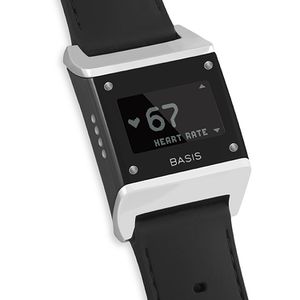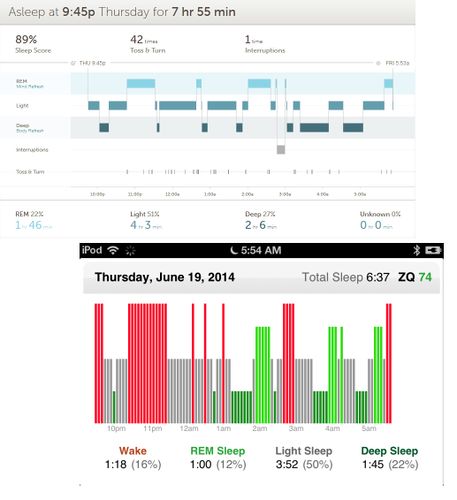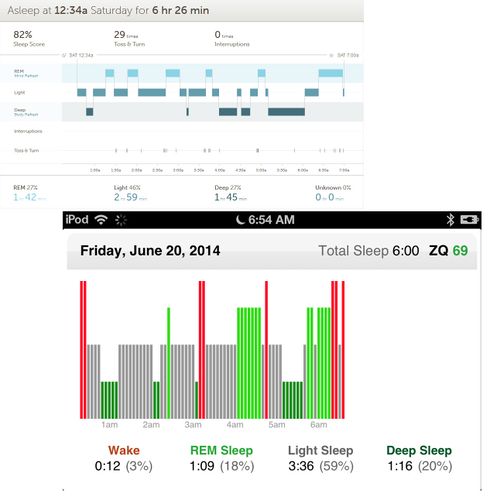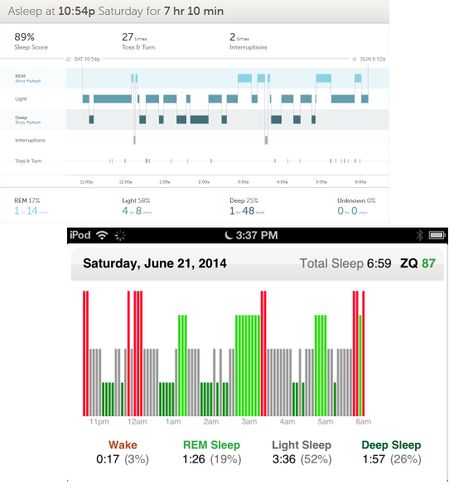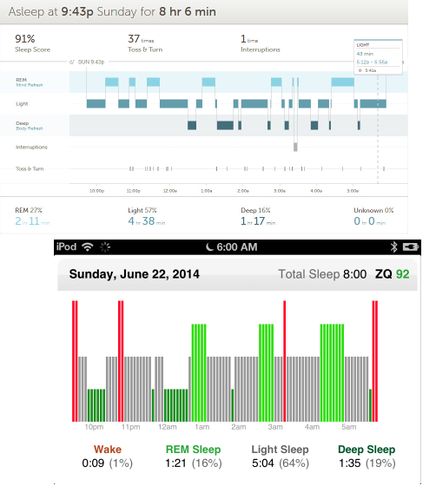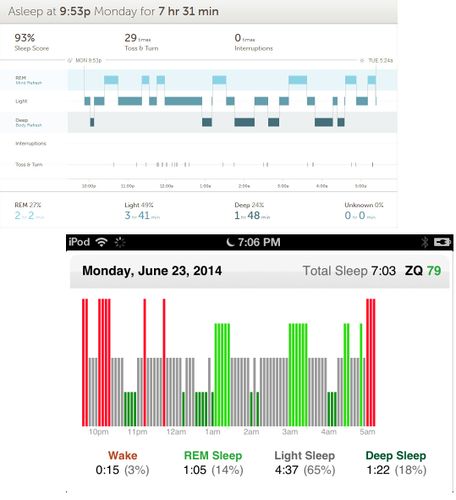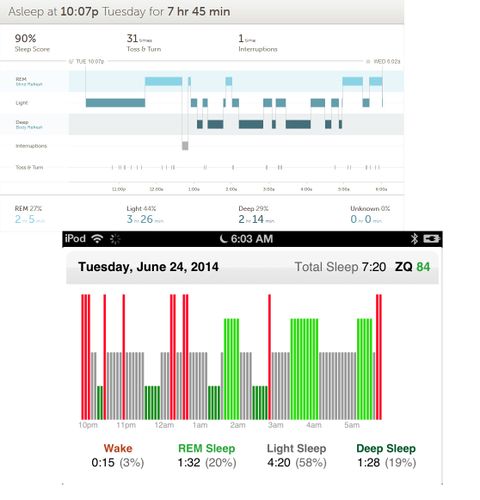Basis Activity Monitory (Health & Sleep Tracker) Review
From Fellrnr.com, Running tips
The Basis is probably the best activity monitor so far, but has some noteworthy flaws. Its superiority to other monitors comes from its broader range of sensors, which include heart rate, skin temperature, and perspiration in addition to accelerometer based movement detection. This gives the Basis far more information with which to evaluate activity, including sleep. The Basis Activity Monitor is Error: Could not parse data from Amazon!.
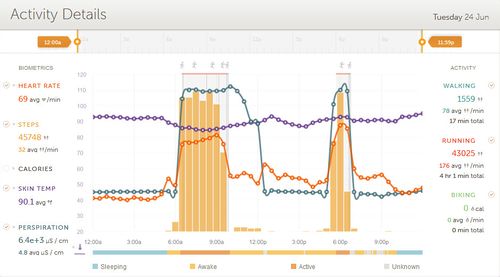
An example of the information from the Basis Activity Monitor, showing heart rate, skin temperature, and perspiration .
1 Pros
These pros raise the Basis above the completion.
- The biggest advantage the Basis has over its competition is its additional sensors. This allows it to determine activity levels far better than simple movement.
- The Basis can use its sensors to determine sleep patterns, including time spent in light, deep and REM sleep. While I don't believe it's as accurate as the defunct Zeo Sleep Monitor that used a headband to measure brainwaves, it's better than anything else on the market.
- The web site and mobile applications work reasonably well. They provide "habits" to encourage usage and healthy behavior, as well as visualizing the data nicely.
- The battery life of the Basis is good, lasting several days at a time. However, this battery life obviously required some compromises (see below.)
2 Cons
While the best on the market, the Basis has some flaws you should be aware of.
- The Basis has an appalling display, probably to reduce battery drain. Without the backlight activated, it's almost impossible to read, and the backlight only improves things slightly. In normal lighting conditions the Basis too dim to see without undue effort.
- The Heart Rate monitoring works, but not as well as something like the TomTom Cardio that also uses optical heart rate detection. The Basis has pretty useless detection during exercise, and even at rest it seems to only get some samples.
- My comparisons with the Zeo suggest that the Basis differs quite a bit in its estimate of sleep. Unfortunately, without an independent evaluation it's hard to know which is right. Both systems have comparisons with sleep studies that indicate they are both nearly as good as a professional interpreting a laboratory recording. However, determining sleep state is not a clear, simple task, and trained personnel will differ in their interpretations much of the time. All things considered, the Basis is currently the best option for sleep analysis by far.
3 The Future
Given the growth in the activity monitor market, we are likely to see a number of changes.
- Future monitors are likely to have far more sensors. The rumored Apple iWatch is projected to have 10 different sensors, which may give it a far better insight into activity and health.
- Currently the activity monitors and sports watches are quite different. Although there are some hybrid devices (Garmin 15, Polar V800), these do not really the integration people will want. The integration of GPS sports watches with activity monitors may provide devices that are greater than the sum of their parts.
- The current activity monitors are just that; they monitor activity. The future is likely to like with full health monitors, that provide insight into other aspects of our health and lives beyond activity. Measuring blood pressure, blood oxygen saturation, blood glucose, etc., could provide a huge benefit in understanding our health, but individually and as a culture. Obviously, some of these, like non-intrusive blood glucose sensing, have been sought after for many years and will be tricky to achieve.
4 Competition
- Wirthings. This activity monitor can also record heart rate, as well as SpO2. However, both of these measurements require you to explicitly take a recording rather than providing continuous monitoring.
- Adidas Fit Smart. While this looks rather like an activity monitor, it's actually more of a sports watch. Like the Basis, the Adidas has optical heart rate monitoring. However the Adidas uses the more accurate system from Mio (used in the TomTom), but this approach also rapidly drains the battery giving only five hours of use. It can pair with a smartphone to provide GPS, and in some ways is more of an advanced smartwatch for running then either a running watch or a activity monitor.
- Smartphone. There are a vast array of activity monitoring apps for smartphones that use the built in accelerometers. These apps require you to keep the phone on you for monitoring, and are not as effective as a watch type monitor, but they are far cheaper. There are also apps that will detect sleep patterns by having the phone on the bed while you sleep. These are rather ineffective, but at least they record how long you're spending in bed.
- Zeo. The Zeo only functions as a sleep monitor, but it seems to do a much better job. Sadly it's discontinued.
- Apple Watch. The Apple Watch had such promise, but the reality falls far short. The initial indications are that the Watch will only record Heart Rate "on demand" rather than continuously.
- Other activity monitors. There are many other activity monitors on the market, but without the extra sensors that the Basis has, they are poor substitutes. Unless you are after a smartwatch to act as a remote interface to your smartphone or a fashion accessory, stick with the basis.
